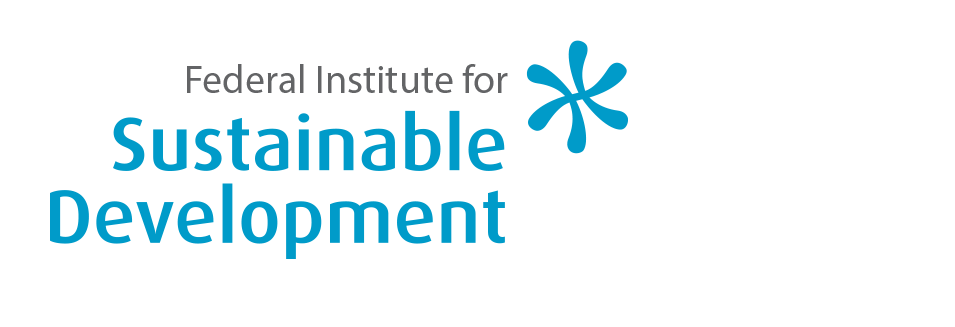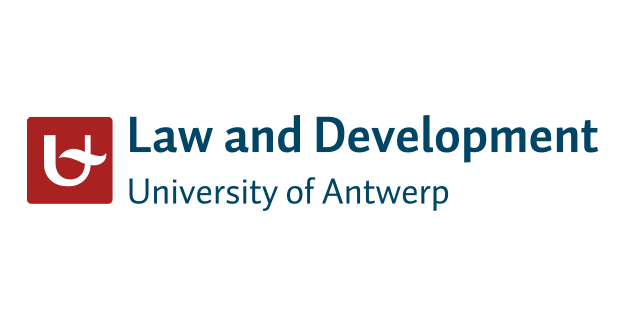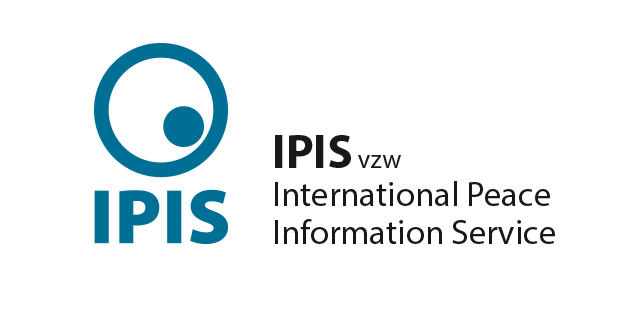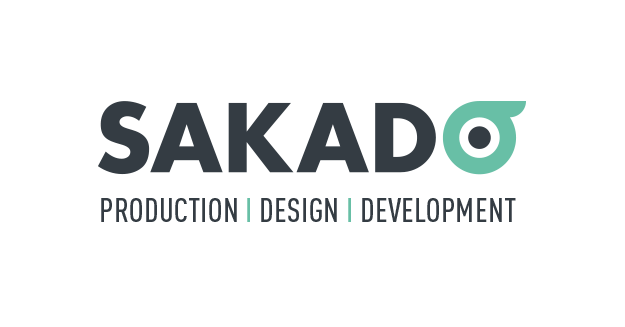10 Human rights self-assessment compliance
What is a self-assessment of human rights compliance?
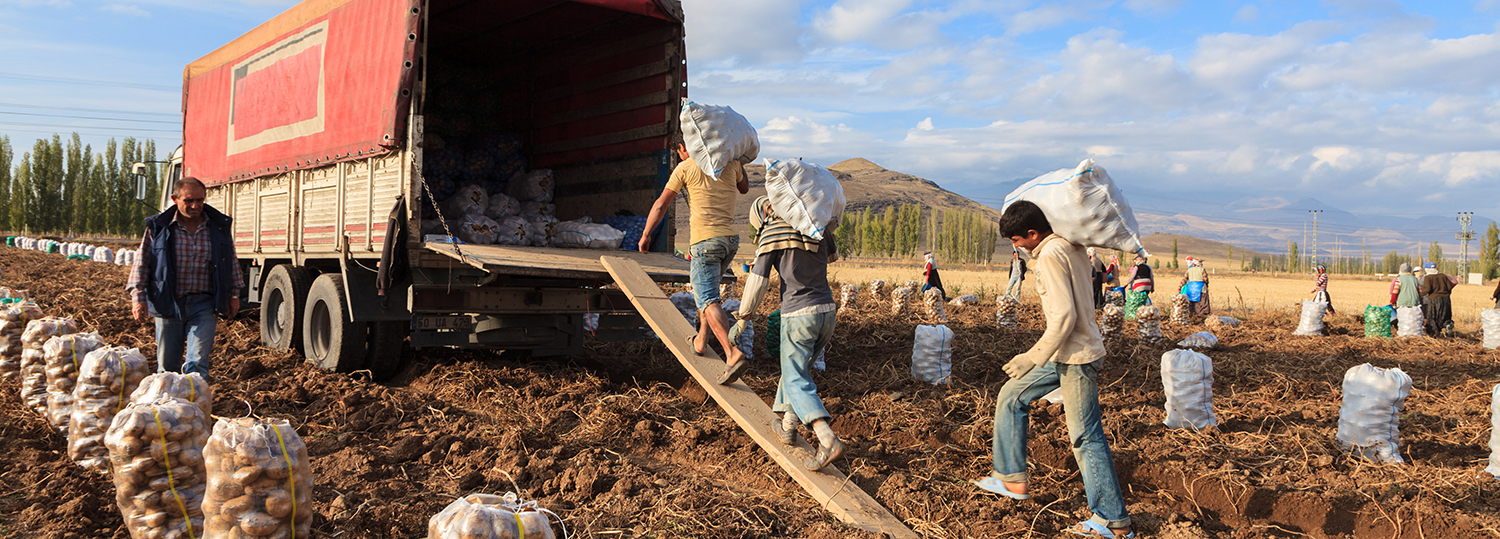
Self-assessment of human rights compliance by organisations aims at checking whether their own activities or those of their partners directly or indirectly produce adverse effects on human rights or violate human rights rules and standards. Self-assessment of human rights compliance also applies to state organisations when they act as private organisations, such as state-owned corporations or credit agencies.
The concept of compliance has been incorporated into organisations’ structures and management. It refers to respecting and implementing state regulation of private activities, self-assessing the risks involved in an organisation’s activities and procedures, implementing checks and procedures to verify respect for rules and standards in practice, and implementing mechanisms to address potential or actual failures.
Corporate compliance covers diverse issues such as corruption, fair competition, intellectual property rights (IPR) protection, taxation, environmental protection, human rights, etc. In many cases, compliance is reflected in organisations’ CSR policies. Usually, codes of conduct indicate the values connected with compliance that guide organisations and their relations with partners.
The incorporation of self-assessment of human rights compliance into the management of organisations has been consolidated thanks to the UNGP, as well as other guidelines, such as the ILO Tripartite Declaration or the OECD Guidelines.
There is no single framework or methodology to identify risks and implement human rights compliance requirements and procedures. The legal binding framework is the core content of self-assessment mechanisms. Non-binding soft law guidelines help in identifying duties and implementing mechanisms to avoid human rights violations. Reporting mechanisms are a way of informing authorities and stakeholders about the risks of their activities and how to address them.
Compliance may also involve an organisation’s commitment to promote human rights in its activities and within the supply chain. Even if private organisations usually do not have concrete duties to fulfil human rights, they are expected to support the state in accomplishing its duty to fulfil human rights - for instance, by verifying whether all workers in their value chains have a decent salary.
Self-evaluations are usually based on guidelines produced by international organisations, human rights organisations, research institutions, NGOs, etc. Using diverse methods such as indicators constructed on the basis of human rights law and standards, they identify whether organisations are complying with their human rights duties. They also identify whether organisations have implemented the tools and processes necessary to verify compliance in all the areas of their activities and in their relations with other organisations along the value chain. Results are only indicative, given the difficulty of constructing indicators.
Self-assessment of human rights compliance aims at identifying and evaluating risks in order to take corrective or complementary measures to redress impacts or improve policies and processes. Self-assessment also aims at verifying whether partners perform audit reports and self-assessments of their activities as well. It is a way of exercising leverage in the value chain, and in some cases, it can be part of a Human rights due diligence or a human rights impact assessment.
The classification of existing compliance mechanisms is difficult, because there is an impressive number of modalities offered by an even more impressive number of organisations. Many of them are more oriented towards CSR compliance, which includes a partial version of human rights compliance. CSR usually refers to social (labour) and environmental compliance – these issues are also related to human rights but usually dealt with separately, following the tradition / trend in the US. This toolbox follows the UDHR approach and considers that all human rights are interconnected. Therefore, social and environmental protection are viewed as part of the human rights compliance assessment.
This section presents some of the most representative self-assessment mechanisms available. It is complemented by the test of this toolkit. The mechanisms outlined here can be particularly useful for small and medium-sized organisations. They are classified here as check lists and self-scans or guides to assess whether organisations are complying with human rights rules and standards and adapting their activities. These mechanisms can also serve to prepare monitoring or certification processes, or be used in an internal audit. In addition, some databases are included because they can support self-assessment or provide information, particularly for evaluating value chains. These instruments have been organised by author according to the type of body that has released them (state or non-state organisation). Some instruments from other countries have been included for comparative purposes.
International Organisations
- UN system
-
- Sustainable Development Goals Acceleration Toolkit (2017)
-
The UN Development Group (UNDG), composed of 32 UN funds, programmes, agencies, departments and offices involved in development, launched this toolkit consisting of a compendium of diagnostics, models, methodologies and guidance. This is a complex instrument designed for governments and UN country teams. It is relevant for organisations involved in development programs and projects. The aim is to speed up the achievement of the 17 Sustainable Development Goals (SDGs), with an emphasis on the human-rights based approach to SDG implementation.
The toolkit contains three types of tools. Tools for analysing SDG links explore the “interconnections, synergies, trade-offs and bottlenecks” among the SDGs. Last-mile analysis tools seek to identify fragile states, most vulnerable populations, financing means for implementing the SDGs, and human rights mainstreaming tools to integrate rights-based approaches into SDG implementation. Risk-informed planning tools promote a context-sensitive implementation of the SDGs by considering the characteristics of the country or the community and focusing on vulnerabilities. These last tools include: disaster risk reduction tools, environmental degradation risk reduction tools, peace and conflict analysis tools, and tools for financing resilience, among others.
- Child Rights and Security Checklist (2016)
-
UNICEF published this checklist to protect children and adolescents in security arrangements in the context of extractive activities. It was designed by a multi-stakeholder working group of corporations, governments, civil society organisations and consultants, based on the Voluntary Principles on Security and Human Rights framework, the UNGP and the Children’s Rights and Business Principles.
This checklist is intended for governments and organisations to self-evaluate how their security frameworks respect and protect children’s rights. Although it was designed for the extractive sector, it can also be applied to non-extractive activities, as it seeks to identify, improve and protect children’s rights within the security programs of diverse stakeholders.
- Realising the Human Rights to Water and Sanitation: A Handbook by the UN Special Rapporteur on the human right to safe drinking water and sanitation - Checklists (2014)
-
The UN Special Rapporteur on the human rights to safe drinking water and sanitation published this handbook to guide stakeholders (government, civil society and organisations) on the scope of and legal duties related to the human rights to safe drinking water and sanitation. One of the annexes includes several checklists on relevant topics to be considered when implementing projects, to avoid causing adverse impacts on these rights. Some of these checklists aim at monitoring compliance with the human rights to water and sanitation, as well as the right to access to justice in case of violations. Other checklists seek to verify whether principles related to non-discrimination and equality, access to information, participation, sustainability and non-retrogression are respected
- The UN Global Compact
-
- The UN Global Compact self-assessment on human rights
-
The UN Global Compact released these checklists that distinguish four relevant aspects: assessment, definition, implementation and communication. The checklists relate to the 10 principles of the Global Compact. They are addressed to all kinds of corporations, but can also be used by other organisations. Three checklists are of relevance for this toolbox: human rights, social (labour) rights, and environmental protection.
The checklist on human rights seeks to identify whether organisations are respecting and protecting human rights. It enquires whether human rights law has been implemented by means of concrete mechanisms such as human rights codes, corporate codes, risk assessments, impact assessments, operational guidance notes, complaint mechanisms, employee training and awareness, supply chain arrangements, employee performance assessments, public disclosure of policies and practices, multi-stakeholder dialogues, etc.
The checklists on labour rights focus on rights recognised in the core ILO conventions, such as the rights to organise, to collective bargaining, and to safe working conditions. They also focus on the relevant mechanisms mentioned in the human rights checklist, as well as other specific mechanisms such as age verification.
The checklists on environmental protection focus on verifying compliance with international environmental law and standards through implementation of mechanisms that guarantee an efficient use of natural resources, cleaner and safer production, responsible consumption and the implementation of the 3R initiative of the G8 (to reduce waste, reuse and recycle resources and products). These checklists also seek to verify whether targets or indicators have been implemented to monitor and evaluate performance, report emissions, and monitor an organisation’s water footprint
- The Interactive map for business of anti-human trafficking organisations
-
The UN Global Compact’s Action Platform on Decent Work in Global Supply Chains launched this database in cooperation with the Global Business Coalition Against Human Trafficking, the RESPECT Initiative, Babson College Initiative on Human Trafficking, the International Organisation for Migration, the Global Initiative Against Transnational Organized Crime, and Alliance 8.7.
The interactive map provides information on organisations working with the business sector to avoid being involved in activities linked to modern slavery and to support the eradication of human trafficking. It is a tool to assess partners rather than a self-assessment tool, because it can identify whether a potential partner (in its value chains) is involved in activities related to human trafficking such as child labour, forced labour or violations of the rights of (migrant) workers.
This tool contains information about several organisations active in several economic sectors as well as cross-industry, such as: agriculture and forestry, apparel, construction, finance, food and beverage, IT, manufacturing, mining, tourism and hospitality, and transport and logistics.
- Linking the Sustainable Development Goals and International Human Rights Instruments (2016)
-
The UN Global Compact launched this database, which explicitly formulates the human rights at stake in each SDG. It can be used by any stakeholder, as it serves to identify the human rights involved in the sector to which each SDG refers. It is a condensed version of the database released by the Danish Institute of Human Rights, which is presented below.
- Linking human rights and anti-corruption compliance (2016)
-
This database from the UN Global Compact aims to provide information to any stakeholder on the relationship between human rights and anti-corruption compliance. This allows organisations to integrate these considerations into their compliance programs, as both human rights and anti-corruption are part of corporate compliance. This is useful because adverse human rights impacts and corruption create similar risks for an organisation’s activities, such as misconduct in the organisation and its supply chains.
This tool also provides guidance and good practices on a number of issues, namely: how anti-corruption compliance programs can be a model for structuring human rights impact management; how to align human rights and anti-corruption policy commitments; and how to integrate human rights and anti-corruption procedures and risk assessments.
- Guide to corporate sustainability shaping a sustainable future (2014)
-
This guide orients organisations in implementing sustainable practices, such as: alignment of operations with social and environmental principles; incorporation of these principles into the values of the organisation; commitment of the board of directors; and annual reporting on progress and engagement with local communities. It is aimed at orienting corporations on compliance with the UN Global Compact principles, but it can be useful for any kind of organisation.
- Integrating concern for human rights into the mergers & acquisitions (M&A) due diligence process (2013)
-
The UN Global Compact released this guidance to support stakeholders in M&A processes, with the aim of integrating human rights compliance into the M&A due diligence process in accordance with the UNGP.
European Union self-assessment compliance tools
- The EU Questionnaire to raise SME awareness of CSR (2015)
-
The European Commission designed this checklist to help organisations self-evaluate their CSR efforts. The aim is to identify how to improve the compatibility of an organisation’s activities with the components of CSR, and to identify further actions to be implemented in order to strengthen business, reputation and performance. The questions relate to CSR issues. Some CSR issues - such as policies on the workplace, environment, marketplace (linked to consumer protection) and community, as well as corporate values - are relevant for human rights compliance. This is because they also seek to protect workers, consumers, the environment and local communities, both inside organisations and along their value chains.
- My business and human rights
-
The European Commission (Directorate-General for Enterprise and Industry) financed this guidance developed by GLOBAL CSR and BBI International. It aims at orienting small and medium-sized enterprises (SMEs) in implementing the UNGP. It introduces the basic concepts of human rights and explains the six steps for performing human rights risk assessments, as well as the mechanisms that should be implemented in this respect. This tool also has a questionnaire to identify the most common human rights risks for SMEs, and a summary of the most common negative human rights impacts caused by businesses.
- Opportunity and responsibility: How to help more small businesses to integrate social and environmental issues into what they do
-
The European Commission (Directorate-General for Enterprise and Industry) released this guidance to support SMEs on various CSR-related issues, such as CSR awareness, new initiatives, understanding and recognition of the role of SMEs in CSR, etc. The guidance defines CSR as voluntary integration of social and environmental issues into the activities of an organisation and into its relations with stakeholders. The aim is to increase CSR awareness and communicate CSR information to the stakeholders of the SMEs and to their supply chain.
Belgian Initiatives
In Belgium, most self-evaluations of compliance are based on international human rights law and related soft law guidelines.
- MVO zelf-scan
-
MVO Vlaanderen (Part of the Flemish government) designed this self-scan to support organisations in self-evaluating their CSR mechanisms. Again, some topics relate to human rights compliance, although this is not the main purpose. The self-scan can be performed by public institutions and by private organisations. It is also possible to differentiate between small and medium-sized corporations and large corporations, as well as between organisations with different scopes (local and international), and according to their type of economic activity. In addition, each of these types of user can perform a short or a comprehensive self-scan.
The self-evaluation generates feed-back for the user and provides an overview of the link between the SDGs and the GRI reporting system. Unlike most self-assessment exercises, this self-scan also allows users to download a “certificate” of completion, which can be posted on an interactive map.
- Checklist voor de GDPR: maak je bedrijf compliant in 13 stappen (2018)
-
The Data Protection Authority from the Federal government has released this check list to support organisations in complying with the EU Regulation on Data Protection (GDPR)
- UGent Checklist
-
This checklist is one of the instruments put in place to implement Ghent University’s Human Rights Policy. It is addressed to UGent workers. The aim is that they perform a very simple human rights impact assessment to identify the risk of activities undertaken in the context of the cooperation agreements between the university and other partner institutions. This assessment focuses on the partners, the cooperation context, and the activities to identify whether the partners are directly or indirectly involved in serious or systematic violations of human rights. This tool promotes the use of the UNGP by educational and non-profit organisations.
Non-state initiatives
Private initiatives related to self-assessment of human rights compliance are varied and abundant. This section includes some of them, but the selection is purely indicative and not exhaustive or representative.
- The European Business Network for CSR: CSR Europe/ Enterprise 2020
-
CSR Europe has a registered office in Brussels, has a membership which includes corporations (mainly MNEs) and national partner organisations, such as The Shift in Belgium. With the support of Enterprise 2020, it launched CSR Europe Assessment Tools to support self-evaluation of CSR compliance. These compliance tools were designed in three steps: evaluation, to assess how organisations operate compared to “ideal situations defined by key stakeholders”; benchmarking, to confidentially compare how organisations perform against other corporations; and improvement, to identify the areas that require change. These tools also provide access to a learning network and best practices on CSR. However, most of these tools are exclusively for use by the affiliates of CSR Europe.
- MIA: Maturity and Integration Assessment (2016)
-
MIA analyses non-financial performance management, based on the EU Directive on non-financial reporting, and how this is integrated into business activities. It promotes risk assessment and management in a similar way to an internal audit. The Get Value Guide Your Company’s Sustainability Journey is a complementary guide for large corporations on the results of the MIA tool and how to deal with related challenges.
- Source for Good
-
Source for Good seeks to support organisations in implementing supply chain sustainability and integrating human rights in business operations. This is mainly a learning and capacity-building platform focused on supply chain sustainability in the EU, as well as globally.
- CSR Europe's Toolbox for a Competitive and Responsible CSR
-
CSR Europe's Toolbox for a Competitive and Responsible CSR was created to support organisations and their stakeholders in addressing socio-economic and environmental challenges and integrating CSR into mainstream business practice. It was designed with the support of the European Alliance for CSR. As in other CSR tools, some issues are linked to human rights, such as labour rights, sustainable production and consumption, and transparency vis-à-vis stakeholders.
- Amfori
-
Amfori is a global business association that promotes sustainable trade. It has its registered office in Brussels. This organisation manages the Business Social Compliance Initiative(Amfori BSCI), which is a system to improve social (labour) compliance in global supply chains. It also manages the Business Environmental Performance Initiative (Amfori BEPI), which supports corporations in improving environmental performance in their supply chains. In addition, this organisation provides the Country Due Diligence Tool, which supports corporations in understanding complex supply chains in a contextualised way (by considering countries, risks and contexts). Besides these initiatives, a database has been designed to support self-assessments of human rights compliance.
- The Amfori sustainability intelligence dashboard
-
This is an online platform that assists corporations in understanding the complexity of supply chain management and improving their sustainability performance. The main goal is to provide access to supply chain performance information. This information is in turn published in the Amfori BSCI and Amfori BEPI databases, and allows organisations to verify information by country, sector, industry, and previous audit results, among others.
- ESCR-Net members and partners of the Business & Human Rights Resource Centre
-
This joint initiative released the document Business impacts on human rights check list, which can be used by any stakeholder. The aim is to support affected communities in documenting corporate-related human rights abuses. This checklist is important because the perspective of local communities is not frequently considered. The checklist provides a methodology to facilitate systematic assessment of the documentation needed to claim remedy, to hold the perpetrators accountable, and to increase the relevance of the rights of local communities.
- A Business and Human Rights Checklist for In-House Counsel
-
The US law firm Foley Hoag LLP published this checklist to bring attention to human rights-related issues for in-house legal advisors. It refers to various aspects: compliance with legal and regulatory requirements focused on human rights; impacts of corporate activity; evaluation of potential for lawsuits, fines, negative media attention, and divestment if human rights harms are linked to the business; and how to address these challenges. This checklist is important for spreading awareness about the need to integrate human rights compliance into the activities of economic actors and their advisors.
- Databases that support self-assessment of human rights compliance
-
This last section presents a selection of databases that provide useful and comprehensive information to support self-assessment of human rights compliance, particularly in supply chains.
- Wikirate
-
Wikirate promotes transparent and responsive corporate behaviour by releasing information about corporations’ environmental social and governance performance. It aims to provide accurate information to stakeholders on the main issues covered by the concept of CSR, including human rights. The requested information can be browsed by corporation, by topic, and by metrics. Wikirate is part of a larger initiative funded by the EU, the Collective Awareness Platforms for Sustainability and Social Innovation (CAPSSI), which aims to design and pilot online platforms on sustainability.
- Sedex
-
Sedex provides a database to support member organisations in performing risk assessments. It has its registered office in the UK, and is unique in that the members are mainly purchaser corporations in developed countries and producers in developing and emerging economies. The information in the database is about working conditions, corruption and environmental issues in the supply chain. It is provided by the members and includes self-assessment data, reports from surveys, corrective action plans and descriptions of improvement measures that have been implemented. This database is used in CSR tools from some European countries.
- The Corporate human rights benchmark (CHRB)
-
The CHRB, a multi-stakeholder initiative, was created by investors and civil society organisations. This initiative launched the first open and public benchmarkngi of corporate human rights performance, which ranks 98 of the world's largest publicly traded corporations on human rights performance. This is useful for stakeholders of these listed corporations, and for large corporations to compare their own performance with the listed corporations.
The following tools are selected for illustrative purposes. They are not an exhaustive list of all initiatives taken in EU countries. They can be useful for Belgian organisations, even if the context and issues are not always the same.
- Denmark
-
- The Danish Institute of Human Rights
-
The Human rights compliance assessment (HRCA)
This checklist supports organisations in assessing and improving human rights compliance. It is based on the internationally recognised human rights. It provides an overview of how the activities of organisations can impact the rights of stakeholders (employees, local communities, customers and host governments). It includes a database of 200 questions and more than 1000 indicators that measure the human rights compliance.
The questionnaires relate to the second pillar of the UNGP - that is, policy indicators that refer to whether the organisation has adopted a human rights policy; procedural indicators that evaluate whether the organisation has implemented procedures to develop the policies; and performance indicators that check how the organisation is developing these indicators. The HRCA is in principle restricted to subscribers, but it was recently released on the “Platform for human rights indicators for business”, which is the result of the analysis of more than 80 corporations and human rights groups from 14 European countries.
Human rights compliance assessment (HRCA) quick check (2006)
This checklist is a free summary of the HRCA tool. It focuses on the same organisations and seeks to identify whether these actors have adopted policies or guidelines regarding human rights compliance, whether they have implemented the necessary procedures to develop the policies, and how they are developing these indicators. The quick checklist also allows organisations to verify their performance over time and covers sensitive issues inside the organisation and along the supply chain. However, this checklist only refers to international human rights hard and soft law - it omits regional perspectives such as EU regulations which have been translated into concrete legal duties for the state and organisations. The Danish Human Rights Institute also offers tailored checklists for some regions and/or economic sectors, such as the pharmaceutical or the extractive industry, but not all of them are free online.
Linking the Universal Periodic Review to sustainable development: Explore the connections between the recommendations of the UPR and the SDGs
The Universal Periodic Review is a process that reviews human rights issues in all UN member states, coordinated by the UN Human Rights Council. The aim is to improve the human rights situation in each country and address human rights violations that occur. This database links the periodic review to specific SDG targets to facilitate the identification of key human rights issues at stake in SDG implementation. This database can also be used to identify the links between UPR recommendations and the SDGs at the global and regional level, which helps in understanding the context of partners in third states. For instance, by using this database, stakeholders can identify relevant human rights issues in a specific country and adopt appropriate strategies in line with the SDG targets. The database can also help to identify vulnerable groups that could be affected by stakeholders’ activities or those of their partners.
The Human Rights Guide to the Sustainable Development Goals (2017)
This database shows the human rights linked to each of the 17 SDGs. It is an expanded version of the database from the UN Global Compact. This database is intended for any stakeholder and supports the self-assessment process by explaining the human rights topics included in the CSR benchmarks. It also aims at improving a human rights-based approach to the mechanisms of programming, implementation, monitoring, evaluation and reporting.
- The CSR Compass
-
CSR Compass is a free online tool from the Danish Ministry of Business and Growth and the Confederation of Danish Industry. It is oriented towards SMEs to guide them in implementing responsible supply chain management. The information provided is mainly based on the UN Global Compact, OECD guidelines, Business for Social Responsibility (BSR), Business Social Compliance Initiative (BSCI), the Danish Ethical Trading Initiative (DIEH) and the Danish Council on CSR’s guidelines for responsible supply chain management.
This online database provides guidelines and information on CSR inside the organisation, the development of responsible supply chain management, the implementation of complaint mechanisms, a glossary, and some specific cases.
- The Netherlands
-
- Mvorisicochecker
-
MVO Nederland (the national hub and networking organisation for CSR funded by the Dutch Ministry of Foreign Affairs) developed this CSR risk checker. This tool was mainly intended to support multinational corporations with international operations in implementing CSR in accordance with the OECD guidelines. The focus is on developing risk management (due diligence) in the business activities of an organisation or in its corresponding value chain. The main guidelines used to design the reporting mechanisms are based on the GRI Sustainability Reporting Guidelines. This risk scan supports interactive self-assessment with an informative character. The feedback provided is complex to assess, because it includes information from many sources (the law, guidelines, NGOs reports, news) and about diverse economic sectors and countries.
- Norway
-
- The Ethical Trading Initiative - Norway (ETI-Norway)
-
This multi-stakeholder initiative which brings together NGOs, trade unions, businesses and the enterprise federation of Norway is funded by the Ministry of Foreign Affairs. It is a resource centre and advocates for ethical trade practices by promoting human rights, workers’ rights, development and environmental standards. Its main purpose is to support members in providing decent working and environmental conditions in their supply chains. It is not exclusively oriented towards corporations, and members are mainly SMEs, public bodies and other organisations. Two self-assessment mechanisms are relevant for this tool, although they are only available to members:
The IEH – Ethical trading initiative Norway guidelines for procurement
This checklist was designed to assess whether the activities of members’ partners are producing adverse impacts on human rights, and if so, how to implement corrective measures.
The self-assessment questionnaires for suppliers and agents/importers
This tool aims at identifying working and environmental conditions in supply chains. The IEH's risk analysis database tool (RAID) provides risk profiles taken from the results of the self-assessment questionnaires.
- The UK
-
- Business and human rights toolkit
-
The UK government released this toolkit to orient UK overseas missions in promoting good conduct by UK companies. It is based on the OECD Guidelines, particularly on how to initiate the OECD complaint procedure before the National Contact Point. In addition, the toolkit refers to other initiatives and resources relating to the implementation of the UNGP.
- Initiatives related to implementation of the Modern Slavery Act
-
Several initiatives have been released to support organisations in implementing the Modern Slavery Act of 2015. Just as Belgian law does, this Act considers human trafficking as a crime and a violation of fundamental human rights. Some self-assessment initiatives are not free, such as the Thomson Reuters checklist that advises organisations on preparing their annual statement and assessing the risk in their supply chains. Other initiatives are online and do not focus exclusively on the large organisations (with a turnover of £36 million or more) which are obliged to produce an annual statement on eradicating slavery and human trafficking within their business and supply chains. These other initiatives seek to support small and medium-sized organisations in voluntarily preparing their own statements.
The Co-operatives UK has developed a self-assessment instrument for cooperatives. It includes general guidance on the modern slavery toolkit and checklists and templates for performing self-assessments. It also provides an information poster and a video to explain the concept of modern slavery, how it can be identified, and corrective measures to be taken where it occurs
- Co‑operatives UK Employee Data Toolkit
-
This toolkit was developed to support organisations on how the GDPR applies to employment. The toolkit consists of GDPR guidance, including a checklist, a draft privacy notice, and a draft data protection policy. It is useful for small and medium-sized organisations which are obliged to follow EU Regulation on Data Protection.

